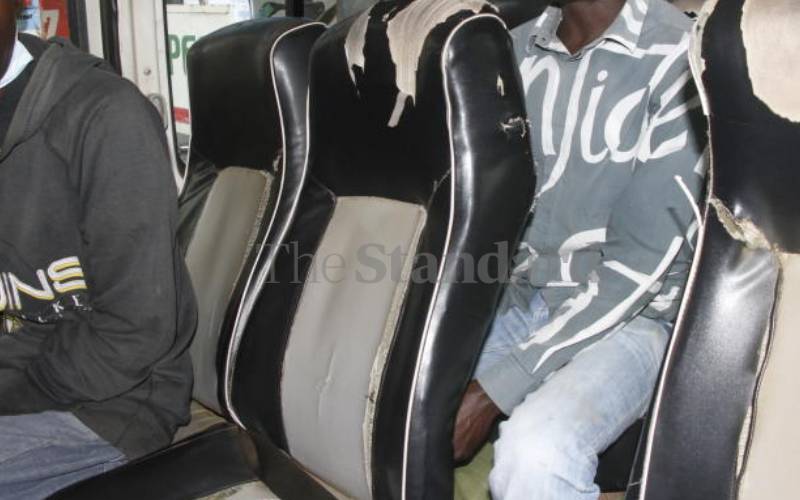×
The Standard e-Paper
Smart Minds Choose Us

Passenger's in a matatu at Migori bus terminus, August 2021. [Caleb Kingwara, Standard]
If you have been to the Machakos country bus terminus in Nairobi or booked a bus to an upcountry destination, then you know the pain that touts can inflict on passengers.